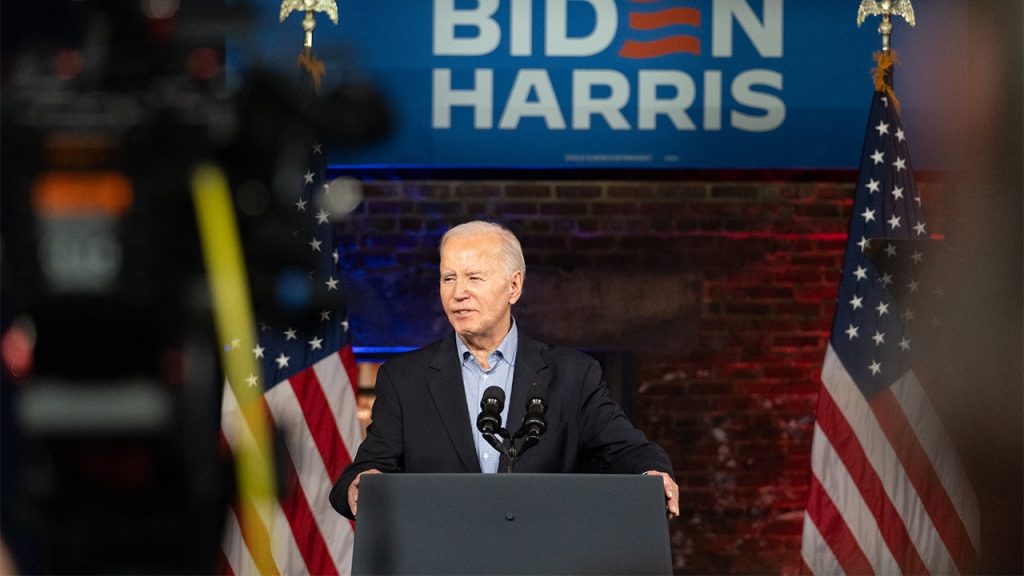President Biden’s recent push to introduce significant changes to the Supreme Court has sparked controversy and criticism from his opponents. Despite being labeled as a moderate, Biden seems to be catering to the left-wing base of the Democrat party with proposals such as term limits, ethics rules, and a constitutional amendment to limit presidential immunity. This move represents a drastic shift for Biden, who had previously opposed plans to make such changes to the high court. The announcement has not only raised concerns about the credibility of the court but has also been seen as an attempt to appeal to more radical elements within the party.
Critics have accused Biden of abandoning his previous stance on court-packing and other measures aimed at reshaping the Supreme Court. Some argue that Biden’s decision to endorse these plans as he leaves office is an attempt to pander to the more extreme factions of his party. By embracing policies advocated by groups like Demand Justice and Fix the Court, which are linked to Arabella Advisors, a dark money fund supporting left-wing causes, Biden risks alienating a more moderate segment of voters. This move has been interpreted as an effort to energize his base ahead of the upcoming elections.
The push for term limits, a code of conduct, and limits on presidential immunity by Biden and Vice President Harris has been met with skepticism and criticism from conservative commentators. Some see it as a desperate attempt to undermine the current conservative majority on the court, which was achieved through the appointments of Justices Gorsuch, Kavanaugh, and Barrett under President Trump. Critics argue that Biden and Harris are attempting to circumvent the Constitution to gain control over the Supreme Court, potentially endangering the separation of powers in the process.
In response to accusations of political maneuvering, the White House has defended Biden’s proposals as an effort to uphold the rule of law and maintain the integrity of the Supreme Court. By pointing to bipartisan support for these initiatives among legal experts, members of Congress, and the American public, the administration hopes to reassure skeptics of the legitimacy and motives behind these changes. However, the announcement has deepened existing ideological divisions surrounding the Supreme Court and its role in the political landscape, with critics warning of the potential consequences of such drastic measures.
The lack of a code of conduct for Supreme Court justices has been a subject of scrutiny in recent years, prompting the adoption of a new set of rules by the court. While these rules are not entirely new and draw from existing ethical guidelines, their introduction represents a step towards greater transparency and accountability within the judiciary. Despite this development, the debate over the role and composition of the Supreme Court continues to be a contentious issue, with both sides of the political spectrum voicing concerns over the direction in which the court is headed.
As congressional Republicans are faced with a choice regarding the proposed changes to the Supreme Court, the debate over conflicts of interest and the independence of the judiciary is likely to intensify. With the future of the high court hanging in the balance, the political implications of Biden’s proposals and the responses from both sides of the aisle remain uncertain. Amidst calls for greater accountability and adherence to ethical standards, the Supreme Court finds itself at the center of a broader conversation about the balance of power and the rule of law in American society.













